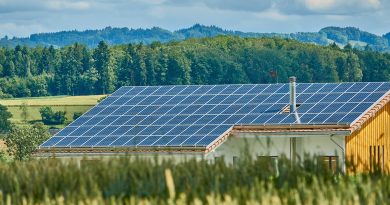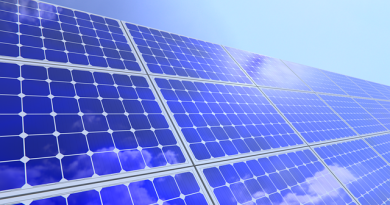Know the Top 8 Solar Panels Benefits
Table of Contents
- 1 Introduction
- 2 Section 1: Renewable and Clean Energy Source
- 3 Section 2: Significant Cost Savings
- 4 Section 3: Environmental Impact
- 5 Section 4: Energy Independence
- 6 Section 5: Government Incentives
- 7 Section 6: Increased Property Value
- 8 Section 7: Technological Advancements
- 9 Section 8: Job Creation and Economic Growth
- 10 Conclusion
Introduction
There are many solar panels benefits. In the quest for sustainable and clean energy, solar panels have emerged as a game-changer. The adoption of solar technology is on the rise, driven by a myriad of benefits that extend beyond environmental considerations. This blog post explores the top eight reasons why solar panels are gaining widespread recognition for the numerous advantages they offer.
Section 1: Renewable and Clean Energy Source
1.1 Harnessing the Power of the Sun
Solar panels generate electricity by harnessing the abundant and renewable energy from the sun. This process produces clean energy without emitting harmful pollutants, contributing to a reduction in carbon emissions and environmental conservation.
1.2 Endless Energy Supply
The sun is an infinite source of energy, ensuring a continuous and sustainable power supply. Unlike finite fossil fuels, solar energy remains accessible as long as the sun continues to shine, providing a reliable and long-term solution.
Section 2: Significant Cost Savings
2.1 Lower Electricity Bills
One of the most compelling reasons to invest in solar panels is the substantial reduction in electricity bills. By generating your electricity, solar panels enable homeowners and businesses to lower their reliance on grid power and save money over time.
2.2 Return on Investment (ROI)
While there is an initial investment in solar panel installation, the long-term benefits include a positive return on investment. The savings on electricity costs and potential incentives contribute to a financially advantageous decision.
Section 3: Environmental Impact
3.1 Reduced Carbon Footprint
Solar panels play a pivotal role in reducing carbon footprints. By producing clean energy without greenhouse gas emissions, they contribute to combating climate change and creating a more sustainable and eco-friendly future.
3.2 Eco-Friendly Manufacturing
Advancements in solar technology have led to more eco-friendly manufacturing processes. The industry is actively working towards reducing the environmental impact of solar panel production, aligning with a commitment to overall sustainability.
Section 4: Energy Independence
4.1 Reduced Reliance on Fossil Fuels
Solar panels contribute to reducing dependence on finite and non-renewable fossil fuels. This shift towards renewable energy enhances energy independence and resilience, mitigating the impact of energy supply fluctuations and geopolitical factors.
4.2 Grid Independence
With the integration of energy storage solutions, solar panel owners can achieve grid independence. This ensures a stable power supply, even during grid outages, providing a sense of security and reliability.
Section 5: Government Incentives
5.1 Tax Credits and Rebates
Governments worldwide incentivize the adoption of solar panels through tax credits and rebates. These financial incentives make the transition to solar energy more accessible and financially attractive for both residential and commercial users.
5.2 Feed-in Tariffs
In some regions, solar panel owners can benefit from feed-in tariffs, where excess energy produced is fed back into the grid, earning them additional income. These incentives further enhance the overall financial appeal of solar energy.
Section 6: Increased Property Value
6.1 Enhanced Resale Value
Homes and businesses equipped with solar panels often experience an increase in property value. Prospective buyers and tenants are increasingly recognizing the long-term cost savings and environmental benefits associated with solar installations.
6.2 Marketability and Appeal
Solar-equipped properties have a competitive edge in the real estate market. The marketability and appeal of properties with solar panels attract environmentally conscious buyers and businesses, contributing to faster sales and leases.
Section 7: Technological Advancements
7.1 Improved Efficiency
Ongoing technological advancements in solar panel design and manufacturing result in increased efficiency. Higher efficiency translates to greater energy production, making modern solar panels more effective and reliable.
7.2 Smart Integration
Solar panels now come equipped with smart technologies, enabling real-time monitoring, data analysis, and predictive maintenance. These features optimize energy production, improve system performance, and enhance user experience.
Section 8: Job Creation and Economic Growth
8.1 Growing Solar Industry
The widespread adoption of solar panels contributes to job creation and economic growth. The solar industry is expanding rapidly, providing employment opportunities and fostering innovation in research and development.
8.2 Local Economic Impact
Solar installations stimulate local economies by creating jobs in installation, maintenance, and manufacturing. This economic impact supports communities and contributes to overall regional development.
Conclusion
Solar panels benefits are many. They are not merely a technology for environmental enthusiasts; they are a practical and beneficial solution for homeowners, businesses, and communities. The top eight reasons highlighted, ranging from cost savings and environmental impact to technological advancements and economic growth, underscore the numerous benefits that solar panels bring to the table. As we embrace a sustainable energy future, the role of solar panels becomes increasingly pivotal in shaping a cleaner, more resilient, and economically vibrant world.



